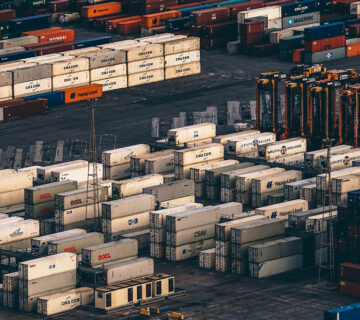- Revolutionizing Last-Mile Delivery: In a bid to enhance efficiency and reduce carbon footprint, leading logistics companies are embracing innovative solutions for last-mile delivery. Drones and autonomous vehicles are taking centre stage, promising quicker and more environmentally friendly deliveries. These advancements not only speed up the process but also pave the way for a greener future in logistics. As consumers increasingly demand faster shipping times, these cutting-edge technologies are reshaping the landscape of last-mile delivery.
- Sustainable Supply Chains on the Rise: Sustainability is no longer a buzzword but a core principle driving change in the logistics industry. Companies are committing to greener practices throughout their supply chains, from sourcing materials to transportation and packaging. With consumers showing a growing preference for eco-friendly products, businesses are aligning their strategies accordingly. This shift towards sustainability not only benefits the environment but also improves brand reputation and customer loyalty, marking a significant trend in the logistics sector.
- Blockchain Transforming Transparency: The integration of blockchain technology is revolutionizing transparency and security in logistics. By providing an immutable ledger of transactions, blockchain enhances trust among stakeholders and streamlines processes such as tracking shipments and verifying authenticity. Supply chain transparency is becoming paramount, especially in industries like pharmaceuticals and luxury goods, where authenticity and compliance are critical. The adoption of blockchain is a game-changer, promising a more reliable and secure logistics ecosystem.
- AI and Predictive Analytics Optimizing Operations: Artificial Intelligence (AI) and predictive analytics are driving efficiency in logistics operations. These technologies analyze vast amounts of data to forecast demand, optimize routes, and manage inventory more effectively. By leveraging AI-powered algorithms, companies can minimize costs, reduce errors, and improve overall performance. From warehouse management to demand forecasting, AI is becoming an indispensable tool for logistics companies striving for competitiveness in a dynamic market.
- Global Challenges and Adaptations: The logistics industry continues to navigate challenges on a global scale, from supply chain disruptions to shifting trade policies. Recent events such as the pandemic and geopolitical tensions have highlighted the need for resilience and flexibility. Companies are diversifying suppliers, implementing contingency plans, and investing in digital solutions to mitigate risks. The ability to adapt swiftly to changing circumstances is proving to be a defining factor for success in today’s logistics landscape. As the industry evolves, resilience and agility remain at the forefront of strategies to overcome challenges and ensure seamless operations worldwide.
These latest developments in the logistics sector showcase a dynamic industry embracing innovation, sustainability, and adaptability. From futuristic delivery methods to sustainable supply chains and cutting-edge technologies, the landscape of logistics is evolving rapidly. As companies strive to meet consumer demands, reduce environmental impact, and navigate global challenges, these trends are shaping the future of logistics and supply chain management.

